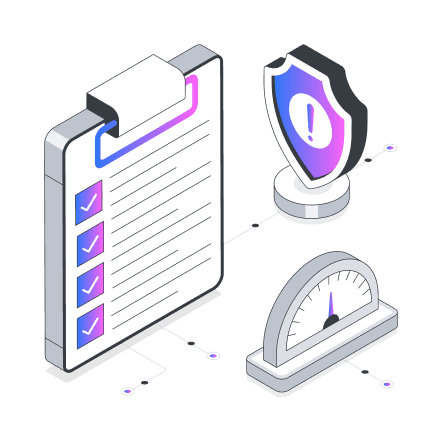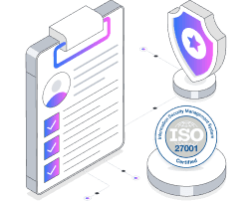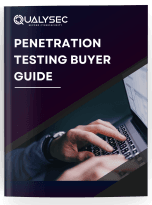Want To Check For Vulnerability Before Launching
Identify vulnerabilities before launching your business application. Qualysec offers pre-launch security checks that will help you spot and fix potential issues.

Reason
Why Conduct a Vulnerability Check Before Application Launch?
A vulnerability check before application launch is crucial to identify and address potential security flaws that attackers can exploit. It’s important to confirm all the vulnerabilities are resolved before the application goes live to avoid data breaches, protect user information, and prevent costly post-launch security incidents. Qualysec’s expert team of pentesters evaluate your app and find all possible vulnerabilities through their unique pentesting techniques.
Expose cyber threat
A vulnerability check before application launch is crucial to identify and address potential security flaws that attackers can exploit. It’s important to confirm all the vulnerabilities are resolved before the application goes live to avoid data breaches, protect user information, and prevent costly post-launch security incidents. Qualysec’s expert team of pentesters evaluate your app and find all possible vulnerabilities through their unique pentesting techniques.

Problems
Top Security Challenges Before Launching A Business App
Launching a business application, web or mobile, is a big event and you have to be sure that your app performs well after launch, avoiding below problems.
01
Unidentified Vulnerabilities
02
Data Protection Issues
03
Compliance Failures
04
Insecure Code Practices
05
Third-Party Risks
06
Lack of Secure Development Practices
Solutions
How Qualysec Solves Compliance Challenges
Partner with Qualysec today if you are planning to launch your app and want to be sure about its security.
01
Uncover Hidden Security Flaws
We conduct comprehensive vulnerability assessments and penetration tests to uncover hidden security flaws before your application goes live.
02
Protect Data with Advanced Encryption
We implement robust data protection strategies, which include encryption and secure data handling practices.
03
Ensure Compliance
To ensure your application meets all relevant industry regulations, we provide tailored compliance assessments and guidance to avoid legal penalties.
04
Improve Security
Our code review and security analysis services identify insecure coding practices to improve the overall security posture of your application.
05
Mitigate Third-Party Risks
We evaluate and manage third-party integrations to evaluate external services and components and their adherence to security best practices.
06
Integrate Secure Development Practices
Qualysec advises on and integrates secure development practices throughout the development lifecycle to mitigate risks from the outset.
Get a quote
Secure Your Application before Launch!
Don’t leave your application’s security to chance. Partner with Qualysec to uncover hidden vulnerabilities, protect your data, ensure compliance, and enhance your overall security posture before its launch.
4+
Years in Business
600+
Assessment Completed
150+
Trusted Clients
21+
Countries Served
FAQ
Frequently Asked Questions
Get quick answers to common questions about API security testing, its benefits, frequency, costs, and more.
What to do before a vulnerability assessment?
Before a vulnerability assessment, gather information about your company’s assets and existing security controls. This helps in comprehensive assessment tailored to your business’s needs.
What are the methods to identify vulnerabilities?
Methods to identify vulnerabilities are:
1. Network scanning
2. System configuration reviews
3. Penetration testing
4. Reviewing vulnerability databases
What is the first step in vulnerability analysis?
The first step in vulnerability analysis is to identify all the assets that need to be assessed, such as applications, cloud network, or IoT devices.
What are two types of vulnerability scans?
Two common types of vulnerability scans are:
- Network-based scans – They look for vulnerabilities across a network.
- Host-based scans – They assess the security of individual systems.



